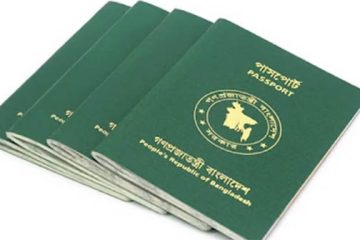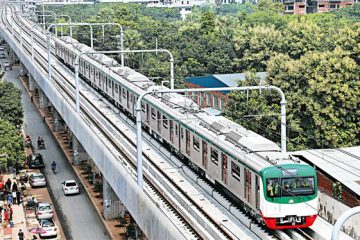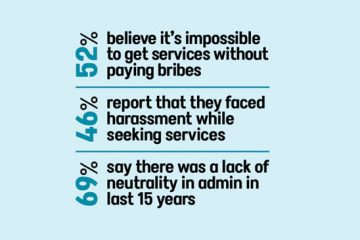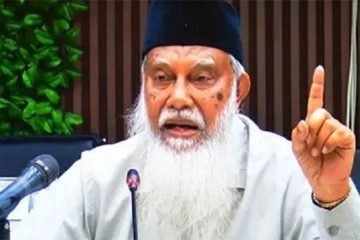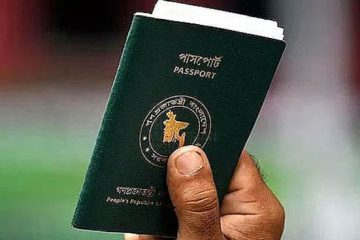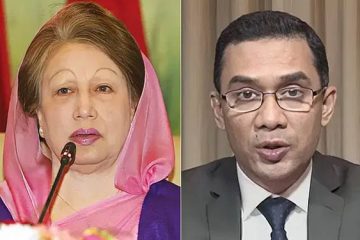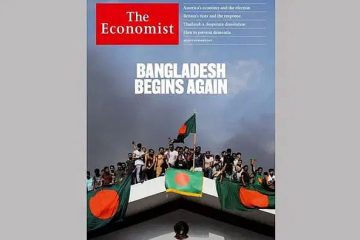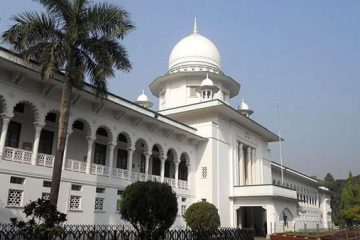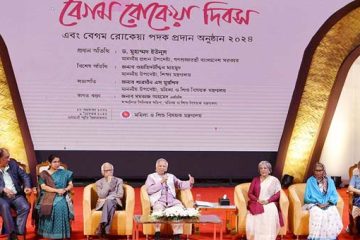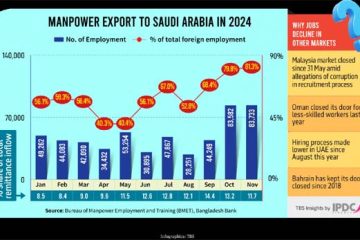The decision of the United States to suspend Generalised System of Preferences (GSP) facilities for Bangladesh may have been triggered by the ruling Awami League’s seemingly vindictive treatment of Nobel laureate Muhammad Yunus, who is widely seen as a darling of the West, and the killing of a labour organiser named Aminul Islam in custody, said London-based weekly news magazine The Economist. “Many other critics suspect that the AL’s seemingly vindictive treatment of Nobel prize-winning economist, Muhammad Yunus, may also have pushed America towards withdrawing the GSP,” it said on July 4. “Mr Yunus is widely seen as a darling of the West and was awarded a Congressional medal in April 2013, to Mrs Hasina’s evident annoyance. A government commission had been established to conduct a workshop on splitting up the Grameen Bank, the micro-lending agency that won Mr Yunus his fame, on July 2 (its meeting was postponed after the GSP suspension was announced). The critics detect a wider campaign on the part of the AL against Mr Yunus, ever since he started hinting he might try his hand at politics, in 2006,” it also said.
“The fear now is that Bangladesh could lose its duty-free access to other trading partners, which could be devastating. The EU, for instance, takes 60 per cent of Bangladesh’s exported garments. The industry is bracing for hard times, both in the overseas markets and in the maelstrom of domestic politics,” it added
The report further said that part of the AL’s new anti-union policy was raised by America in its suspension of the GSP. In April 2012, a labour organiser named Aminul Islam was arrested, tortured in custody and then died under suspicious circumstances.
“Civil society groups in Dhaka and abroad who were angered by his death were among those who pushed for the GSP suspension. No arrests have been made in the case of Mr Aminul, which, according to pressure groups, has created a chilling effect. Human Rights Watch and others have sent rafts of letters to the government, but none has received a reply,” it said.
The report said that the garment industry, so close to the heart of Bangladesh’s economy, is smarting from a sudden suspension of its preferential access to the American market.
The suspension serves mainly a symbolic purpose, but it stings all the same. Readymade garments, the mainstay of Bangladesh’s exports, were not actually covered by America’s GSP facilities.
But it is well understood that the GSP was withdrawn in order to demonstrate America’s persistent frustration with the sector’s dire labour conditions and the fatality rate among its workers.
Readymade garments make up 90
per cent of the total value of Bangladeshi exports to America, which amounts to about $5 billion a year. Removing the GSP should have little immediate effect on these. What is being affected more broadly is the mood in the country, which has already been poisoned by the toxic state of its national politics.
The damage done to the garment industry was triggered by two of the worst industrial disasters on record, both happening in the space of just five months. Workers at Tazreen Fashions were trapped behind locked doors when the place caught fire in November 2012; at least 117 of them died.
Then, on April 24, a building named Rana Plaza collapsed in the industrial suburb of Savar. It contained five working factories. When it fell, 1,130 people were killed. An election that must be held sometime before January 2014 has turned the garment sector into a political battleground. This is unfortunate, not least because the industry‘s failures need to be taken seriously and remedied with haste. Its successes, too, could be used to teach lessons to the rest of the country.
In January 2013, Khaleda Zia, the leader of the opposition BNP, published a hysterical op-ed in an American newspaper in which she called on America and Britain to take punitive action in response to the disasters, in order to “save democracy” from the Awami League (AL), which won office in 2008 by a landslide.
Bangladesh’s business community has become familiar with a five-year cycle. As elections loom, the economy slows. Presently, the IMF expects it to dip beneath the 6 per cent rate of growth to which the country has become accustomed. This periodic slowdown happens mainly because whichever side happens to be in opposition goes to lengths to harm the economy and with it the ruling party’s prospects.
As America withdrew the GSP, the ruling AL’s information minister reminded the nation of Khaleda’s op-ed in The Washington Times. The BNP could do little to defend itself, but to make the extraordinary claim that the party had never submitted the article. Upon catching them out as flip-floppers, the AL shrieked that the BNP were “enemies of the nation” insofar as they had sought to harm the garment industry.
In choosing this line of attack, the AL revealed an alarming degree of forgetfulness. The party, as many will remember, came to power after inducing a military coup in 2006, which it accomplished in part by allying with leftists to cripple the garment sector. This sort of amnesia is not uncommon in Bangladeshi politics. After having won its way into office—arguably with the help of the army, which seized power in January 2007 and thus made way for the elections of 2008—the AL scrapped the military government which was supposed to serve as a caretaker through the next round of elections.
To cap it off, the AL created a special police force to keep in check those unruly unions—the same unions that took their side in 2006. One manager says that now the BNP is mimicking the AL’s own spoiler tactics by inciting the current worker agitations. Labour organisers concur. One of them compares both of the main political parties to “hawks”, circling the workers from above, seeking to make use of them for their own “dirty politics”.
-With The Independent input

